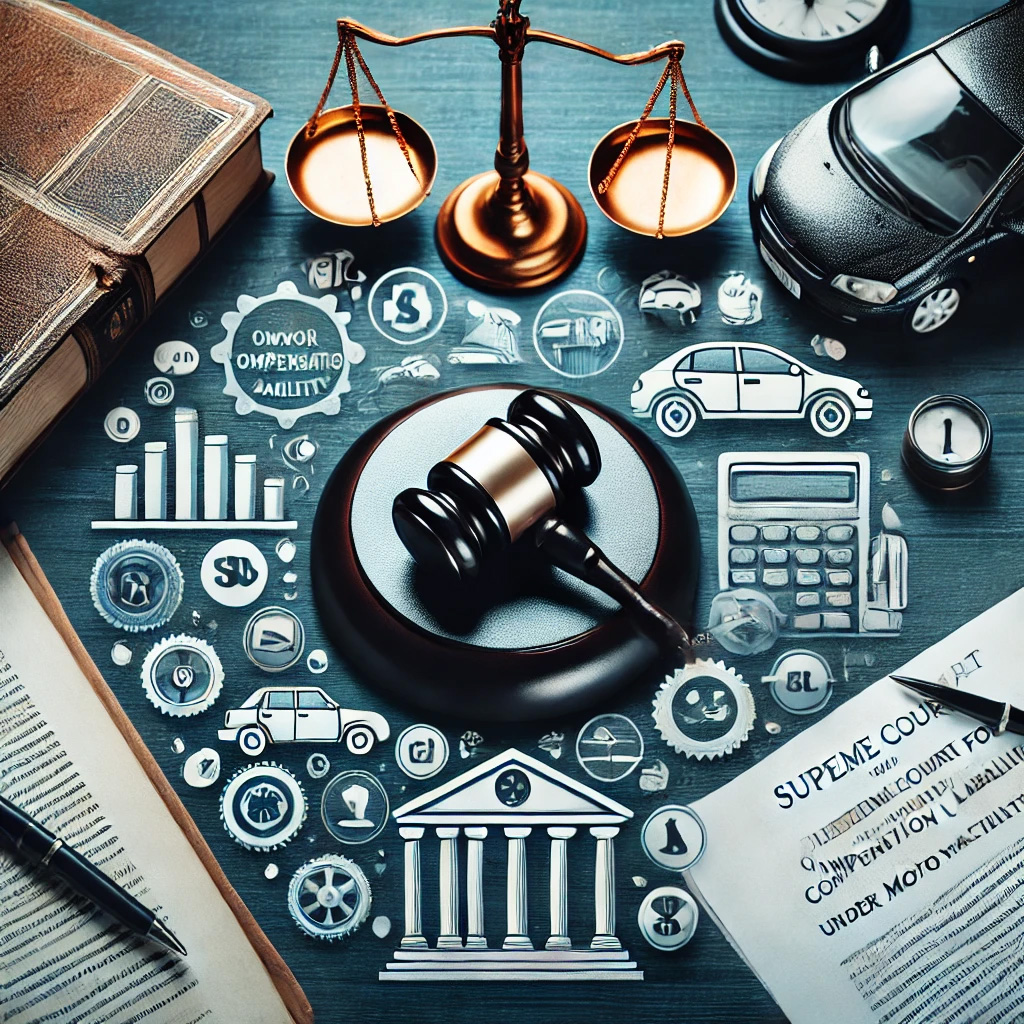Supreme Court’s Landmark Ruling: Expanding the Definition of ‘Owner’ for Compensation Liability
The Supreme Court of India has delivered a pivotal judgment in the case of Vaibhav Jain vs. Hindustan Motors Pvt. Ltd. [Civil Appeal No. 10192 of 2024], fundamentally reshaping the interpretation of “ownership” for liability under the Motor Vehicles Act, 1988. This ruling clarifies that a person in command or control of a vehicle at the time of an accident can be deemed the “owner” for compensation purposes, regardless of the vehicle’s registration status.
Key Takeaways:
- Broadened Definition of ‘Owner’: Even if a person is not the registered owner, if they have control over the vehicle at the time of an accident, they can be held liable for compensation claims.
- Motor Vehicles Act, 1988: This ruling interprets the term “owner” under Section 2(30) of the Act, which defines the owner as the person in whose name the motor vehicle is registered, or, if it is under a hire-purchase agreement, the person who has possession of the vehicle.
- Practical Implications: This ruling ensures that individuals or entities that have real control over the vehicle cannot escape liability merely by stating they are not the registered owner. This is particularly relevant in cases where companies or institutions lend vehicles or in employer-employee relationships.
This decision underscores the responsibility of those in effective control of a vehicle to exercise due care, ensuring that victims of road accidents are adequately compensated.
Background of the Case
The case emerged from a tragic accident involving a vehicle owned by Hindustan Motors Pvt. Ltd., which was temporarily registered under their name. The incident occurred during a test drive, resulting in the death of Mr. Pranav Kumar Goswami, a Territory Manager with Hindustan Motors. At the time, the vehicle was being driven by Shubhashish Pal, a Service Engineer employed by the company.
Mr. Goswami’s legal heirs sought compensation and named Shubhashish Pal, Hindustan Motors, and Vaibhav Motors, the dealer, as respondents in their claim.
Core Legal Issues
The Supreme Court, comprising Justice J.B. Pardiwala and Justice Manoj Misra, addressed several critical questions:
- Definition of Ownership: Can Vaibhav Motors, as a dealer, be considered the “owner” for liability purposes?
- Implications of the Dealership Agreement: Did the agreement between Hindustan Motors and Vaibhav Motors shield the manufacturer from liability?
- Application of CPC Rule: Could Hindustan Motors contest its liability using Order 41 Rule 33 of the Code of Civil Procedure (CPC) without filing an appeal?
Court’s Findings
Supreme Court’s Landmark Ruling: Expanding the Definition of ‘Owner’ for Compensation Liability
- Redefining Ownership: The Court clarified that the term “owner” under Section 2(30) of the Motor Vehicles Act is not limited to the registered name. Justice Pardiwala and Justice Misra noted that “owner” can include anyone who had control over the vehicle at the time of the accident, thereby broadening the scope of liability.
- Dealer Liability: The Court found that Vaibhav Motors, as a dealer without control over the vehicle during the accident, could not be held liable. Justice Pardiwala emphasized that the management and control of the vehicle rested with Hindustan Motors and its employees.
- Dealership Agreement Exemption: The dealership agreement did not absolve Hindustan Motors of liability, as it lacked specific clauses excluding responsibility for the vehicle’s use.
- Order 41 Rule 33 of CPC: Hindustan Motors could not use this rule to challenge its liability since they had not filed an appeal or cross-objection. The Court upheld the tribunal’s decision on liability.
Supreme Court’s Ruling
The Supreme Court concluded that Vaibhav Motors was not liable for compensation because it did not control the vehicle at the time of the accident. The compensation awarded to the claimants was upheld, and Vaibhav Motors was permitted to recover any payments made from Hindustan Motors with interest.
Conclusion
This landmark decision by the Supreme Court, delivered by Justice J.B. Pardiwala and Justice Manoj Misra, significantly impacts road traffic law by broadening the interpretation of “ownership” under the Motor Vehicles Act. The ruling ensures that those who have practical control over a vehicle are held accountable for compensation, reinforcing justice and responsibility in road traffic accidents. This shift in legal interpretation underscores the need for all parties involved to exercise caution and responsibility, ensuring fair compensation for accident victims.
29 Sep 2024




